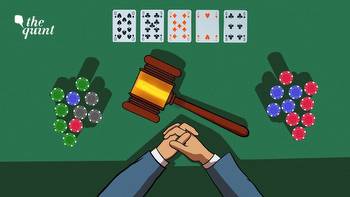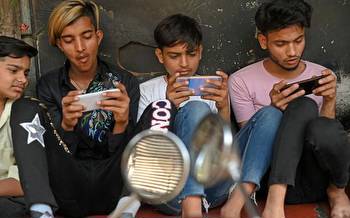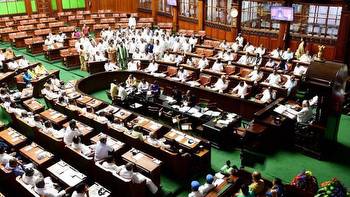Karnataka's bill banning online gambling makes industry stakeholders unhappy

The Karnataka legislative assembly’s lower house on September 21 evening approved a bill banning all betting and gambling by passing the Karnataka Police (Amendment) Bill, 2021, which MediaNama obtained and summarised last week. The law drew rebukes from industry players and their associations, and legal experts cast doubt on whether the law would hold up in court. The bill essentially outlaws any sort of online gambling, including the kind where players’ skills can decide the outcome. This is in opposition to games of luck like lotteries. The bill will now have to pass the upper house of Karnataka’s bicameral legislature before becoming law.
Gambling is a state subject in the Indian constitution, meaning every state has its own law to govern betting and gambling activities. But over the decades, the judiciary has curtailed states’ ability to outright prohibit betting and gambling when they require some element of skill by players. The most recent example of this was the Madras High Court overturning the Tamil Nadu gambling ban that was practically identical to the Karnataka one, a ruling that rested on several such precedents.
How the industry is reacting
- The Internet and Mobile Association of India said that the law was “non-progressive,” adding that “the bill introduced in the assembly appears to have been drafted without considering the various legal and constitutional positions by including a wide definition of ‘gaming’ in amendments against various Supreme Court and High Court judgments.” The industry association added, “IAMAI is of the view that the bill may hurt Karnataka’s position as the country’s startup hub and lead to the loss of jobs and revenue for the state. There are 92 gaming companies registered in Bengaluru which employ over 4,000 people. In the past three years, international investors have invested around INR 3,000 crores in gaming and animation startups in the state. […] Legislative actions such as this, may create a cloud of confusion and create regulatory uncertainty, which may unintentionally result in investors recalibrating their investments in the state and many existing companies may consider shifting base from the state.”
- The Federation of Indian Fantasy Sports, which represents fantasy betting sites like Dream11 and Mobile Premier League, said that “the Bill appears to be misguided since it penalises legitimate businesses by treating them at par with illegal online gambling, betting and wagering platforms,” adding that “vide judgment dated July 30th 2021 the Hon’ble Supreme Court finally upheld the validity of Online Fantasy Sports by stating that the issue of whether fantasy sports format amounts to gambling or betting or wagering is no longer res integra. Further, the Hon’ble Supreme Court also reaffirmed the judgments of the Rajasthan, Punjab & Haryana & Bombay High Courts all of which upheld the validity of fantasy sports as being legitimate businesses entitled to protection under article 19(1)(g) and article 14 of the Constitution of India.” It added, “Almost every major sports tournament, leagues, International, national level competitions have investments and partnerships with our member companies. Such confusing signals from the Karnataka government could result in impeding the development of sports in the State.” (Emphasis theirs)
- Arpit Gupta and Rutuja Pol, Senior Associates at Ikigai Law, a law firm that authored a report for IAMAI extolling the “huge economic returns” of the real money gaming industry, said: “It is quite strange that the Karnataka government decided to go ahead with this law, despite several precedents on why a law like this is unlikely to work. There is the recent Madras High Court judgement, with many of its observations directly applying to this situation. Even more important are the recent statements from the Telangana government, which seems to have learnt from what happened in Tamil Nadu, and publicly emphasized that there is a need to pass legislations governing online gambling and gaming that wouldn’t suffer judicial setbacks. Even if one is to ignore the legal technicalities, it is also a bizarre decision for a state like Karnataka from a policy perspective — the state that houses the Silicon Valley of India is now shunting away one of India’s biggest sunrise sectors. Karnataka’s former IT minister also tweeted yesterday expressing concerns about this.”
- The Confederation of All India Traders, a large trader union, said that “we have received multiple representations and appeal for many Indian companies and developers, industry and trade bodies regarding the same, and how this will into job and industry loss of great magnitude and push the Indian gaming sector back by many years,” and that the bill would hurt startups. “The bill will end up encouraging illegal offshore gambling and betting apps who operate in the online grey market,” Praveen Khandelwal, CAIT’s National Secretary-General, wrote in a letter to Karnataka Chief Minister Basavaraj Bommai.
- Ranjana Adhikari, Partner – Media, Entertainment & Gaming with the TMT Practice group of IndusLaw said: “The approach adopted by State of Karnataka is best described as being paternalistic and in ignorance of very set legal principles regarding skill gaming right, at the level of the Supreme Court. Skill games have the protection under the Constitution of India as a legitimate industry protected under the fundamental rights guaranteed. We have plenty of examples in the recent times itself where the Supreme Court and various High Courts reaffirmed this, for instance the recent Supreme Court verdict on the Dream 11 case and the striking down of the amendments introduced by Tamil Nadu. Karnataka should have taken a lesson out of Tamil Nadu’s recent experience and adopted a more balanced and progressive approach. The manner in which the bill has been passed is certainly open to challenge and unlikely to pass the muster of the legal tests that have evolved.”
Real money gaming in India
Different states have different approaches to online betting and gambling. Some states have tried bans, and others have tried licensing. For instance:
- Sikkim‘s Online Gaming (Regulation) Act, 2008 is “the first Indian legislation to expressly permit and regulate online gaming,” the Ministry of Electronics and Information Technology said in an affidavit with the Delhi High Court. However, “the State Government restricted the offering of ‘online games and sports games’ to the physical premises of ‘gaming parlours’ through intranet gaming terminals within the geographical boundaries of the State by enacting the Sikkim Online Gaming (Regulation) Amendment Act, 2015.”
- Nagaland enacted the Nagaland Prohibition of Gambling and Promotion and Regulation of Online Games of Skill Act in 2015. This law “seeks to have pan-India application by extending the applicability of the said Act to all those States where the games so being offered are legally permissible ‘games of skill,’” MEITY said.
- Andhra Pradesh amended its gaming act to prohibit online betting and “online games for money or other stakes”. The ban is being challenged at the Andhra Pradesh High Court, though it is unclear who the petitioners are.
The union government told the chief minister of Andhra Pradesh in a letter that it was considering a “uniform approach” to regulate online betting and gambling.
I cover the digital content ecosystem and telecom for MediaNama.







































